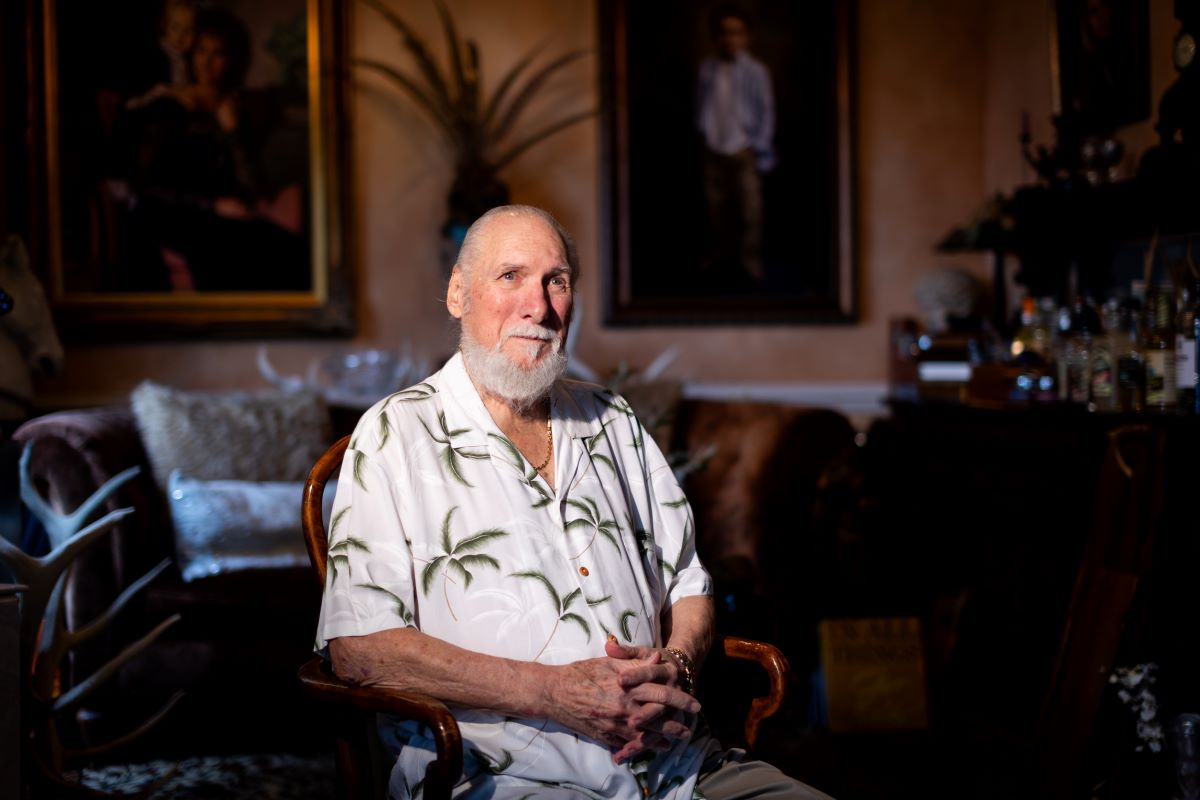
Photo credit: Stacie Huckeba
Tell us about your tour vehicle.
Well, I can tell you about touring with the Blues Brothers for 25 years. I left the Blues Brothers because I was tired of going through three countries to get to the next gig. We’ve been through a couple of different promotional guys, but it just got to be too much. We did 49 nights in a row once, and it damn near killed everyone. But they thought it was cute to give us two weeks off on a beach afterward.
How do you eat cheaply and/or healthy while on tour?
You don’t. You drink too much. The good news is, when I’m home and not touring, I don’t drink at all. I only drink when we go to a restaurant. My wife doesn’t drink, so when I’m home, I don’t either. I might have a margarita at a Mexican restaurant or a glass of wine at an Italian place, but that’s about it. The only real difference I notice from being in the business is that you get treated better at restaurants—you get a better table.
How many strings do you break in a typical year? How much does it cost to replace them?
It depends. Some years, none, others, several. If I’m playing a Telecaster, I don’t break any strings. But if I do break one, we change the whole set of strings now. In the old days, we’d just change the one string. I learned to put chapstick on the strings to make them last longer.
Where do you rehearse?
We don’t really rehearse. My wife asked me when we practice, and I said, “We don’t practice. If you know what you’re doing, you don’t need to.” We might run over a song or two, but we don’t practice. We do soundchecks, though. I’ve played with people who spend all afternoon working on one sound, and it’s going to change the minute the audience comes in. I hate soundchecks, so I’ve worked out something where I don’t have to soundcheck. The engineer gets the band, horns, and vocals separately, and then he just has to adjust the levels during the show.
What was the title and a sample lyric from the first song that you wrote?
I have no idea. I was 14 years old when I wrote my first song. I don’t remember it off the top of my head. But I do remember that the first song I wrote with lyrics was “No Time to Lose.” Jim Stewart reminded me that I’d written “lose” wrong. After that, he only wanted to hear my instrumental stuff. He didn’t want to hear anything with lyrics until I played a song for Carla Thomas. She loved it, and then Jim wanted to hear everything I had vocally.
Describe your first gig.
I think it was a sock hop at a high school. They called them sock hops because the gymnasium was the only room big enough, and you couldn’t wear shoes on the floor, so everyone danced in their socks. That might have been my first gig.
What was your last day job? What was your favorite day job?
Oh yeah, I unloaded trucks and worked at a grocery store. They used to let me off about 10 to 15 minutes early so I could get on stage by the middle of the second set. That was our high school band, which became the Mar-Keys.
How has your music-related income changed over the past 5-10 years? What do you expect it to look like 5-10 years from now?
I think it’s gotten worse for young artists these days. All the kids now want the money right then, as soon as they’re done. I tell them, “You ought to think about joining the union. One day, you might have a family, and you’ll need something to leave them.” I’ve got a pension, and I took care of my family first before anyone else. If you don’t join the union, that money will be gone, no matter how much you make. The excitement as a musician is hearing something you worked on the radio for the first time. It’s a thrill you never forget.
What one thing do you know now that you had wished you knew when you started your career in music?
I know more about the business now, and that’s what contributed to our success at Stax. We were selling groove, not just music. It was all about emotion. We released songs when we thought people would relate to them, and that formula worked. I’ve tried to apply that with other musicians through life, and sometimes it worked, sometimes it didn’t.
